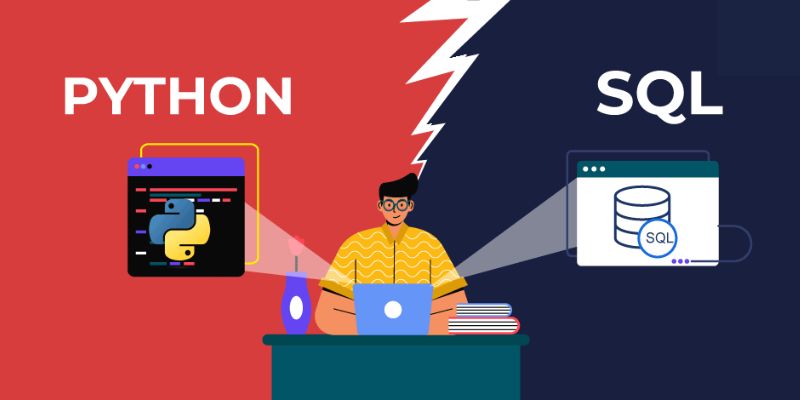In the dynamic realm of data management and analysis, the choice between SQL and Python often poses a dilemma for professionals seeking the most efficient and effective tools. Both SQL (Structured Query Language) and Python are powerful, but they serve distinct purposes and possess unique attributes. Understanding their disparities and optimal use cases is crucial for making informed decisions in data-related endeavors. In this blog, we will explore SQL vs. Python: Differences and Best Use Cases. Are you looking to advance your career in Python? Get started today with the Python Training in Chennai from FITA Academy!
SQL
SQL, a domain-specific language, primarily focuses on managing and manipulating structured data in relational database systems. Its syntax revolves around querying databases to extract specific information, modify existing data, and define structures. SQL excels in handling vast datasets and executing complex joins and aggregations with utmost ease and efficiency.
Key Characteristics of SQL
SQL boasts a declarative nature, enabling users to specify the desired outcome without delving into the intricate procedural details. Its robustness in performing operations like filtering, sorting, and grouping data makes it indispensable for businesses relying heavily on database management.
Python
In contrast, Python stands out as a general-purpose, high-level programming language renowned for its versatility in diverse domains, including data analysis, machine learning, and automation. Its flexibility and extensive library support make it an optimal choice for data manipulation, statistical analysis, and building complex algorithms.
Key Characteristics of Python
Python’s readability and conciseness contribute to its widespread adoption, allowing data professionals to craft intricate data processing workflows with clarity and precision. Its extensive libraries such as Pandas, NumPy, and SciPy empower users to perform complex data operations effortlessly. Learn all the Python techniques and Become a Python developer Expert. Enroll in our Python Training in Chennai.
Key Differences Between SQL and Python
Syntax and Structure
SQL relies on a domain-specific syntax tailored for database operations, while Python exhibits a general-purpose structure suitable for a huge array of programming tasks beyond data manipulation.
Use Cases
SQL predominantly serves as a querying and management tool for relational databases, while Python fulfills multifaceted roles in data analysis, machine learning, and automation, leveraging its expansive library ecosystem.
Scalability and Performance
SQL excels in handling large-scale data operations and complex joins, offering unparalleled performance in relational database management, whereas Python’s versatility shines in crafting intricate data workflows and performing statistical analysis.
Best Use Cases for SQL and Python
Optimal Scenarios for SQL
- Extracting specific subsets of data from large relational databases
- Modifying existing data based on predefined conditions
- Performing complex joins and aggregations across multiple tables
Optimal Scenarios for Python
- Analyzing and visualizing data using statistical methods and machine learning algorithms
- Building custom data processing pipelines for complex data transformations
- Automating repetitive data-related tasks across diverse datasets
In essence, choosing between SQL and Python is driven by the specific demands and goals of the data-related tasks at hand. SQL excels in managing and querying structured data within relational databases, while Python empowers users to embark on versatile data analysis, manipulation, and automation endeavors. By understanding their distinct characteristics and optimal use cases, professionals can leverage the strengths of SQL and Python to drive efficient and effective data-related outcomes. Looking for a career as a python developer? Enroll in this professional Programming Languages Institutes in Chennai and learn from experts about Important Programming Basics in Python, Loops, Control Statements, Functions, Modules and Packages in Python.
Read more: Python Interview Questions and Answers


